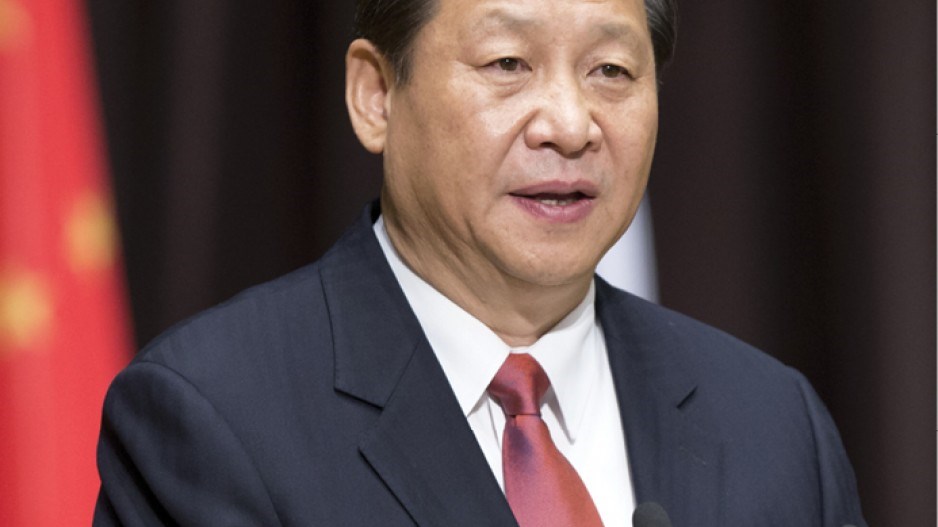Beijing is halting approval of all applications for new free trade zones, convinced state and municipal governments either don't understand the next phase of economic reforms or are wilfully following their own agendas.
The Chinese government received about 20 applications from local administrations following the establishment last September of a free trade zone (FTZ) in Shanghai. This is aimed at experimenting with financial services liberalization and fundamental changes in how government economic institutions operate.
But on June 5, the magazine Outlook Weekly, which is published by the state-controlled Xinhua news agency, said the application process has been halted because the Beijing authorities “are not entirely satisfied with the quality of the applications.”
That seems to be a mild way of putting it. Some officials are saying privately that the local governments have failed to grasp Beijing's vision for the Shanghai FTZ as the testing ground for the next leap in economic liberalization China must make in order to build on the achievements of basic market opening-up in the last 30 years.
Chinese officials say the applications from cities and municipalities have all emphasized the creation of FTZs as a way of generating tax income. They envisage the easing of financial regulations as a new avenue for securing funds for land redevelopment.
The local governments clearly see the FTZ as only an extension of economic development zones that have been implemented since the 1990s. But these have led to toxic economic problems that threaten to exacerbate China's already dangerous economic downturn.
With only limited authority for revenue-gathering, China's local governments have for years sought to raise money to meet their obligations to provide services by engaging in property speculation. This has usually involved taking land from peasant farmers and selling it at inflated rates to property developers in deals frequently involving back-handers and government guaranteed loans.
This has bred a venomous bubble in the price of real estate and a gross oversupply of housing in many cities, and caused banks to groan under the weight of bad debts from loans to municipalities and developers. China's acknowledged debt level is 220% of gross domestic product, though unofficial estimates are much higher.
The halt on consideration of applications for FTZs is a further illustration of the widespread disconnection between the central government and the state and local administrations on policy issues. Indeed, Beijing's ability to direct the actions of regional authorities is often feeble to non-existent.
The suspension also underlines the hesitation with which the ruling Communist Party is approaching this latest tranche of reforms, well aware that they could terminally undermine the one-party state.
The party's cautious approach to the Shanghai FTZ has been evident from the start. The list of businesses and operations that will not be liberalized, or only partially so, in the FTZ runs to 10 pages. There was also a clear message of official hesitation at the opening of the project on September 30, when Premier Li Keqiang, the man ostensibly in charge of the government's economic policy and champion of the FTZ, failed to appear for the opening.
It was not until late last month that the FTZ got an offhand endorsement when president and Communist Party leader Xi Jinping visited the zone while in Shanghai for a summit meeting with regional leaders.
This cautious and methodical approach is in line with China's early experiments with the market economy, which were conducted in the sealed environment of Shenzhen, bordering Hong Kong, before the lessons learned were applied elsewhere.
The Shanghai experiment in financial deregulation may well be successful and Beijing will lift the embargo on new FTZs, but it will be a slow process.
Commmunists facing major challenge: economic reforms versus party survival
China's Communist Party government is facing an acute conflict between the economic reforms essential to maintaining growth and its survival as the country's unchallenged authority.
China may have grown to be the world's second-largest economy in the last 30 years, but size does not denote sophistication. The last premier, Wen Jiabao, described China's tottering economy with crude accuracy when he said it is “unsustainable, unco-ordinated, unbalanced and unstable.”
The new president and party leader, Xi Jinping, has in his 15 months at the helm gathered more power into his own hands than any Chinese leader since Mao Zedong. But even though Xi has announced an apparently sweeping program of structural reforms aimed at “rebalancing” the economy, it remains highly questionable whether he will or can follow through.
A new analysis by Guy de Jonquières, senior fellow at the European Centre for International Political Economy, focuses on the gulf between the way the Xi administration is acting and what it says it wants to achieve in economic liberalization.
Xi, says de Jonquières, is suppressing dissent and trumpeting party authority to a far greater degree than his immediate predecessors.
Yet essential reforms require the party to retreat from intervention and micromanagement. They also require the party to stop, or at least limit, its political control of the courts. Beijing must also work to develop co-operation and commitment from the provincial and municipal governments, a relationship it has failed to achieve so far.




